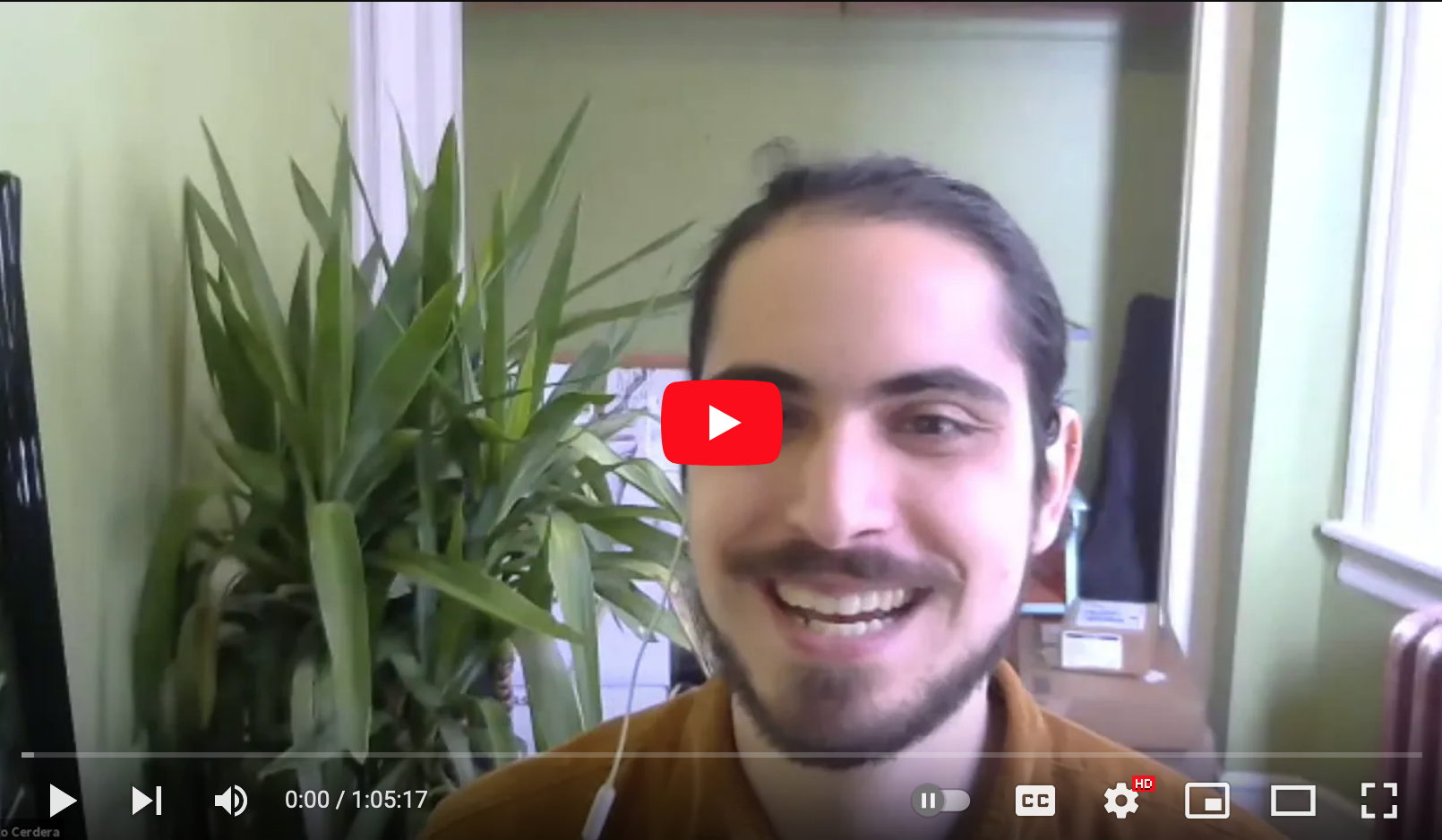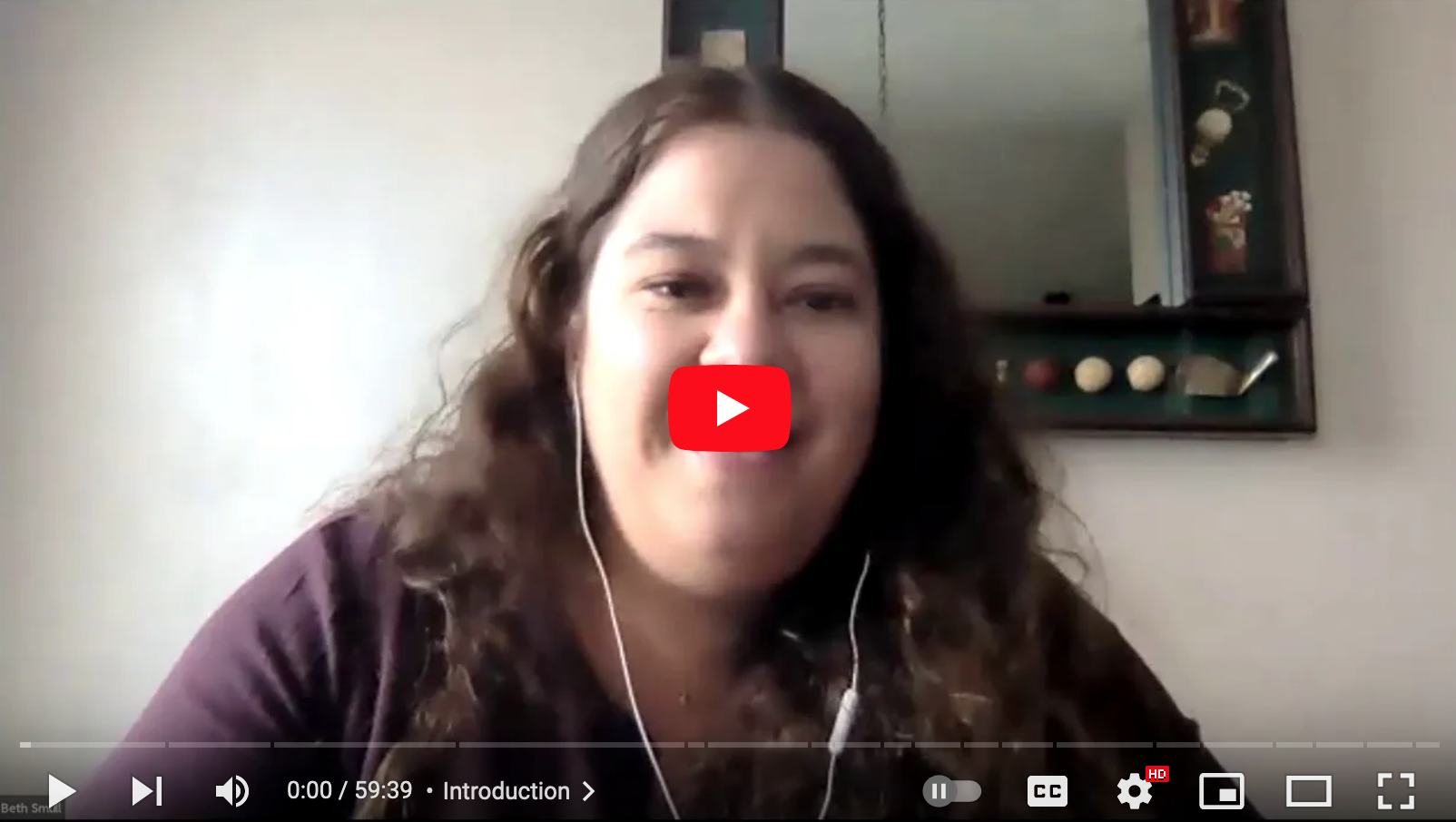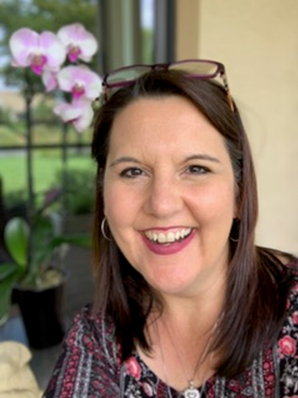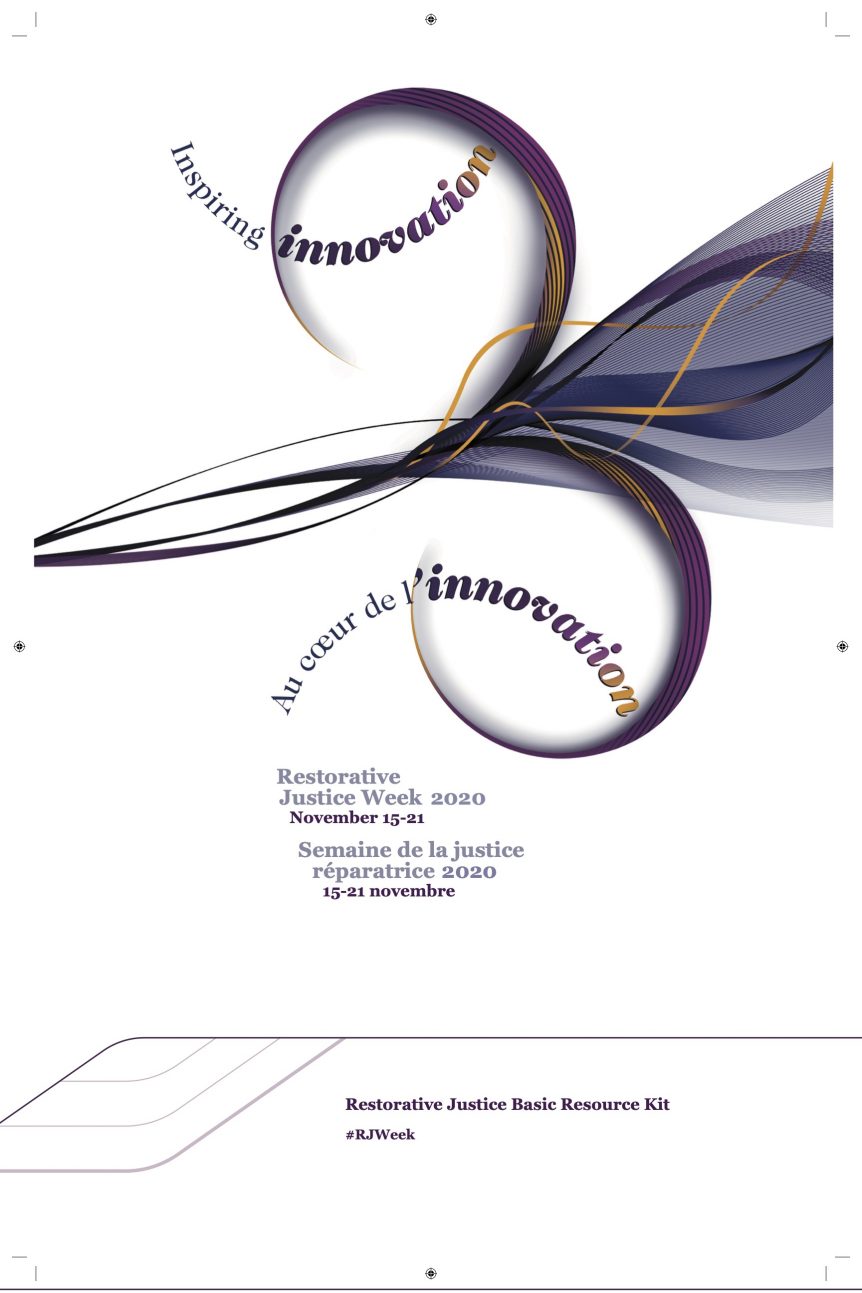News & Announcements
- Details
- Written by John W. Bailie, Ph.D.
The IIRP Graduate School sponsored the December 2020 WOBI (World of Business Ideas) digital event on the theme of emotional intelligence in leadership. Featured speaker Daniel Goleman, Ph.D., who wrote the bestselling book Emotional Intelligence (1995), joined IIRP President John W. Bailie, Ph.D., to discuss why emotional intelligence is more important now than ever, not only for business leaders but all of us.
It was an honor to speak with Dan Goleman. His work on emotional intelligence has been a tremendous influence on my personal practice as a leader. Dan’s thinking has also been foundational to the work of my institution, the IIRP Graduate School — the world’s first graduate school wholly dedicated to the science of relationships and community.
- Details
- Written by Claire de Mézerville López
Claire is the Representative for IIRP Latin America. She is based in San José, Costa Rica.
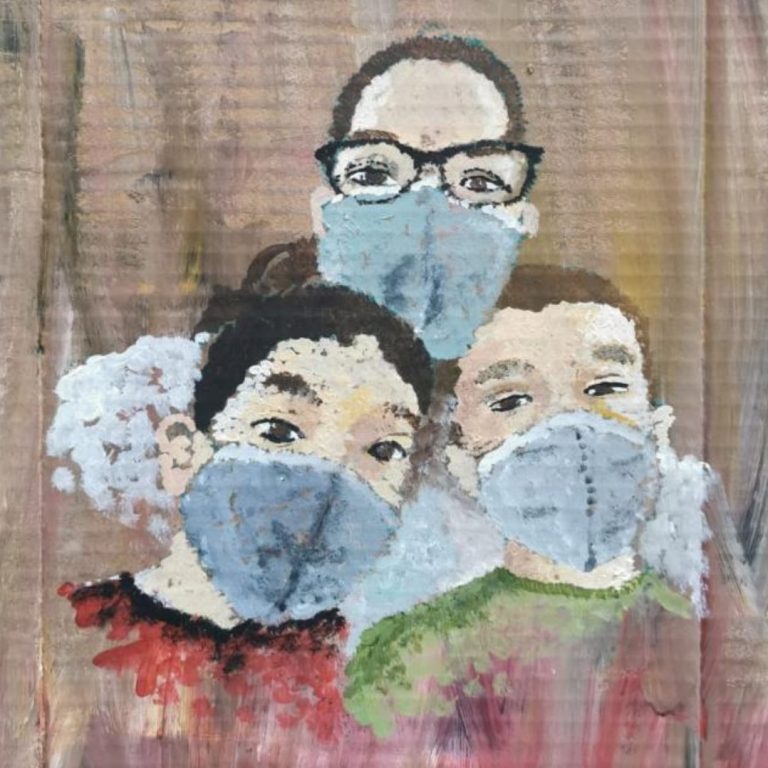 What about the "restorative practices thing"?
What about the "restorative practices thing"?
When people ask me about this “restorative-practices-thing” that I am always talking about, I usually make a summary – unfair as all summaries are – that goes a little bit like this:
(1) Restore the value of the person. Michael White said it well: the person isn’t the problem; the problem is the problem. To separate deed from doer helps us to honor each person’s dignity, even when we disagree or even disapprove certain behaviors
- Details
- Written by Kristin Oakley
Developing strong online relationships is more important than ever in higher education.
The COVID-19 pandemic has created disconnection everywhere, and we are increasingly turning to technologies that can help foster strong relationships and a sense of community. College campuses are particularly impacted. This 60-minute webinar explores the use of technology in relationship-building. Across campuses, restorative practices is playing a crucial role even when we cannot gather in person.
- Details
- Written by Kristin Oakley
Good relationships start with listening.
Listening circles emphasize storytelling for cultivating empathy. They can help your community – workplace, school, organization, neighborhood, university or family – gain a shared sense of understanding and foster emotional connection.
- Details
- Written by Joshua Wachtel
 How the IIRP Graduate School is using restorative practices to talk about the 2020 presidential election.
How the IIRP Graduate School is using restorative practices to talk about the 2020 presidential election.
The IIRP Graduate School is aware of the uncertainty and stress surrounding the U.S. election. We held circles internally to help faculty, staff and trustees begin to process their feelings. We decided to share our process for others to use and learn from.
- Details
- Written by IIRP Staff
The IIRP is proud to announce that Trudy Junkroski is the 2020 recipient of the Shawn Suzch Scholarship. The scholarship is awarded in memory of Shawn Suzch, a young man who overcame adversity with courage and determination and gave his life for his country.
- Details
- Written by IIRP Staff
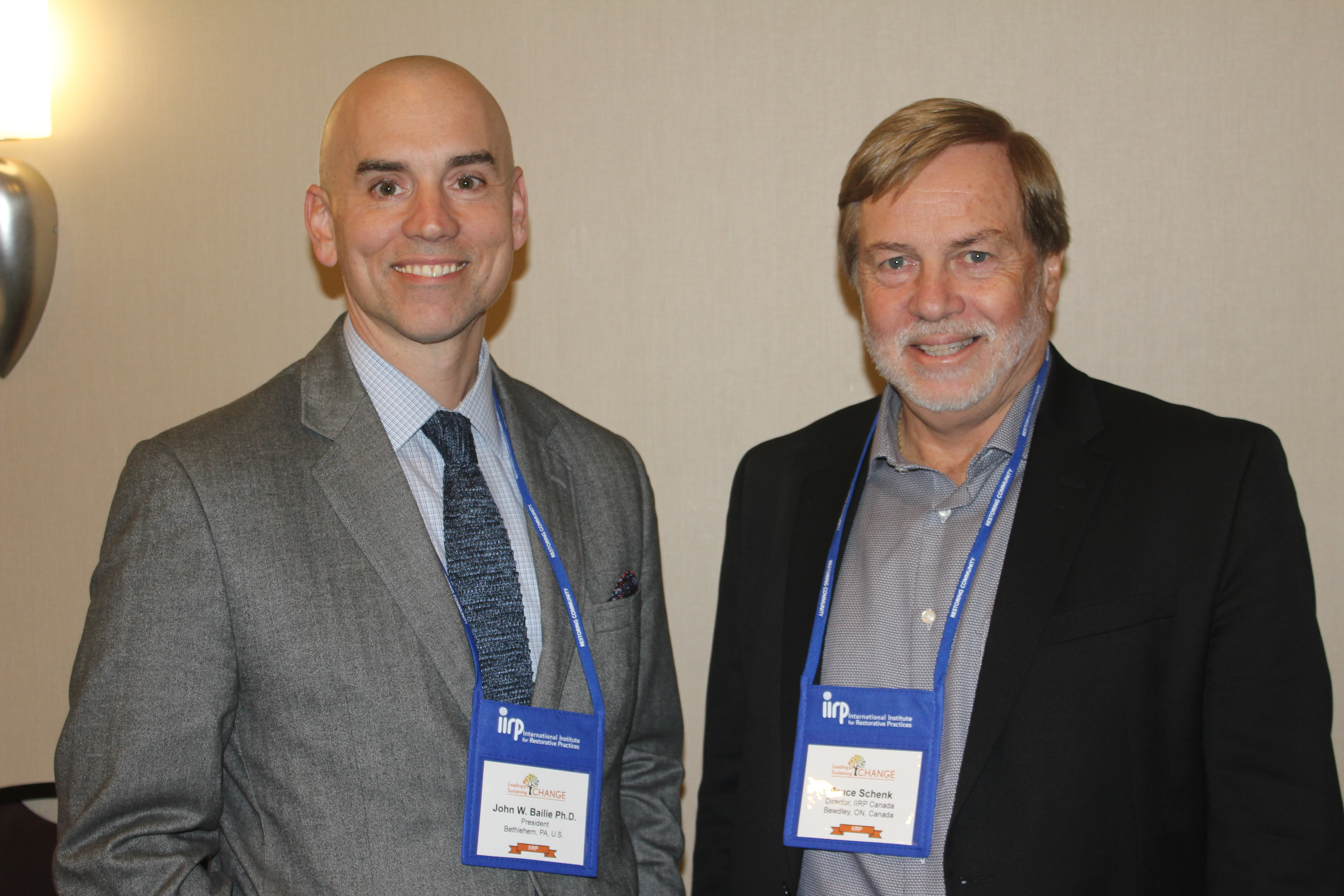 Bruce Schenk (right), along with IIRP President John Bailie at the IIRP Canada Conference in Toronto, 2018.It is with a great sense of warmth and gratitude that we say farewell to Bruce Schenk, who is retiring as Director of IIRP Canada after serving for 12 years. Bruce’s pioneering work in Canada has been instrumental in extending the ability of individuals and organizations to foster healthy, meaningful relationships in schools, justice systems, workplaces and other areas of society.
Bruce Schenk (right), along with IIRP President John Bailie at the IIRP Canada Conference in Toronto, 2018.It is with a great sense of warmth and gratitude that we say farewell to Bruce Schenk, who is retiring as Director of IIRP Canada after serving for 12 years. Bruce’s pioneering work in Canada has been instrumental in extending the ability of individuals and organizations to foster healthy, meaningful relationships in schools, justice systems, workplaces and other areas of society.
“When I started in 2008, restorative justice was a known thing in criminal and juvenile justice circles in Canada, and a little bit in schools, but not restorative practices,” says Bruce. “The thing I’m feeling really good about is how restorative practice is now seen as applicable to so many areas, especially education, and IIRP Canada has had a big role in that.”
- Details
- Written by IIRP Canada
One of our IIRP Canada Instructors, Caroline Gosling was recently a guest on the Ever Active PodClass Podcast to discuss Restorative Justice in a School Setting.
Click to listen here on any of your podcast subscription services.
- Details
- Written by Peggy Barrett
Restorative Practices & Safe Schools – changes in legislation in Ontario for primary students and the application of Restorative Practices
Finally!!!
I was recently researching Bill 197 and its amendments to The Education Act, more specifically the changes in regulations to suspensions of Junior Kindergarten to Grade 3 students. I thought it would be important to brush up on these new regulations given that I had been recently called into a school as a “supply principal”.

Restorative Works Year in Review 2024 (PDF)
All our donors are acknowledged annually in Restorative Works.


